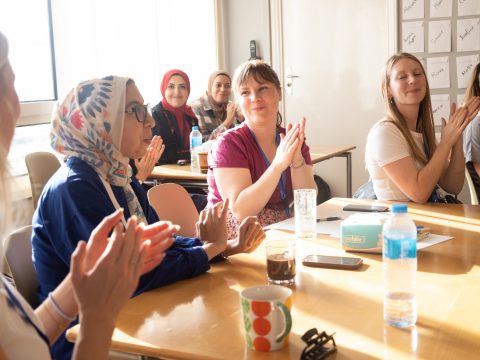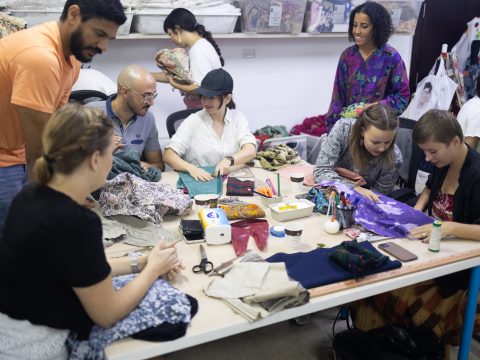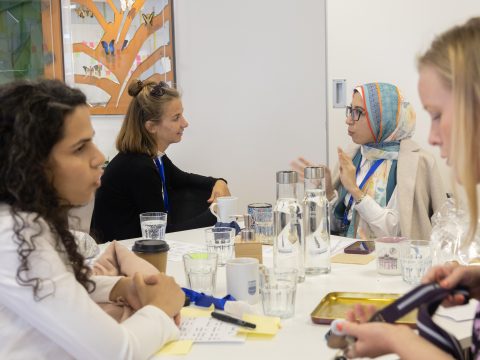Meeting Egyptian women in leadership positions not only gave Julie Lorentzen a better understanding of life in Egypt. It also made her learn something about herself and her own country.
by Rasmus Boegeskov Larsen
When Julie Lorentzen decided to join Women Take the Lead, she was hoping it would be different from what she had experienced in other networks.
“I was really missing a network that was not limited to the field I work in and was not about furthering your career. In such networks it easily becomes a competition, where people boast about themselves and try to surpass one another. I wanted to find a network that was more focused on learning about each other and about oneself”, says Julie Lorentzen, who works as Head of Division at the Department of Management and Communication at the Health and Care administration in the City of Copenhagen.
In the Women Take the Lead network, organized by the Danish-Egyptian Dialogue Initiative, 20 female leaders from Egypt and Denmark hosted each other in Cairo and Copenhagen. They spent days together visiting workplaces, holding workshops, and discussing wide-ranging issues.
“What I found in the Women Take the Lead network was just what I had been looking for. I don’t think I have ever been in a room where people were so openminded and not judgmental or patronizing. When you expressed an opinion, reflection, or experience, it was not questioned or countered by another opinion. Rather, people listened and asked questions to understand you better. We very quickly built up trust and began sharing things that were difficult and sensitive. It was a very liberating experience”, says Julie Lorentzen.








